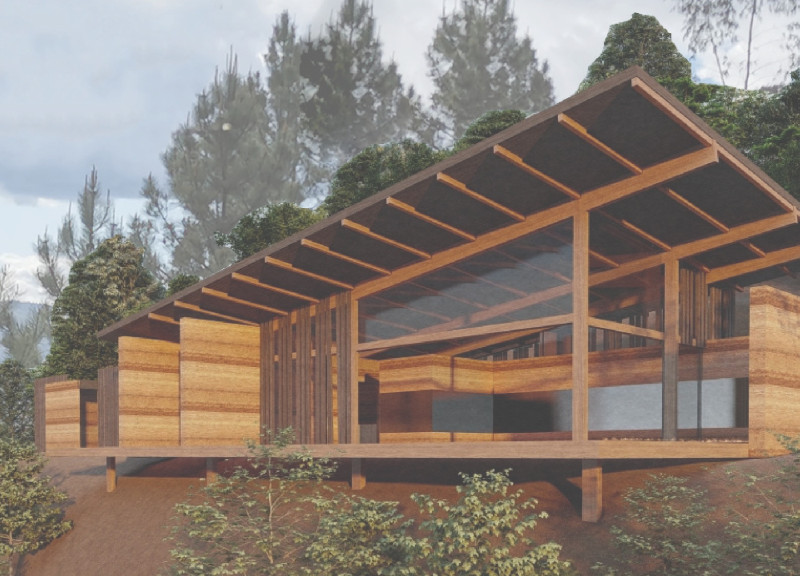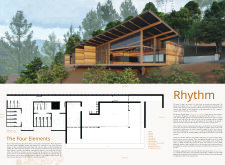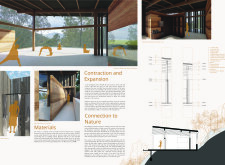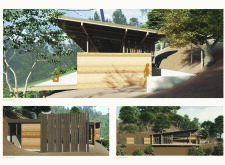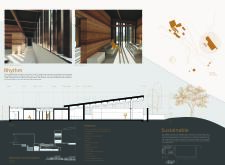5 key facts about this project
The project explores the integration of the Four Elements—fire, water, air, and earth—into a well-defined structure located in Portugal. The yoga studio is designed to enhance the user experience while establishing a connection with the surrounding natural environment. The overall concept is built around the themes of contraction and expansion, guiding visitors through a journey that starts in enclosed spaces and opens up to wide, inviting views.
Design Concept
The design features an entry gallery that creates a sense of intimacy through spatial compression. This space is framed by large earth and concrete walls that make entry feel personal and contained. As visitors move inward, they transition to larger interior spaces filled with natural light and views of the landscape. The sloped roof amplifies this effect, directing focus upward and contributing to the feeling of openness.
Materiality
Rammed earth is the primary material used for the walls, connecting the structure to the local environment. This choice honors traditional building methods found in Portugal, providing a sense of history and place. The material also supports sustainability with its minimal carbon footprint. In addition, locally sourced reclaimed pine is used, adding warmth and texture while ensuring resource efficiency.
Spatial Organization
The studio's layout promotes both personal and communal activities. It includes designated areas for different functions, such as open-air showers at the northwest edge and a fire feature at the southeast corner. The water element at the southwestern boundary further emphasizes the building's relationship with nature, allowing users to feel immersed in their surroundings.
Transparency and Connection
Large glass surfaces help to blur the line between inside and outside, letting in natural light and fostering interaction with the landscape. This design choice allows users to remain aware of their environment while engaging in their practices. The views from within the studio enhance the experience, encouraging a deeper connection to nature.
The ceiling has an undulating form that echoes the contours of the landscape, inviting occupants to sense their place within the wider environment.


